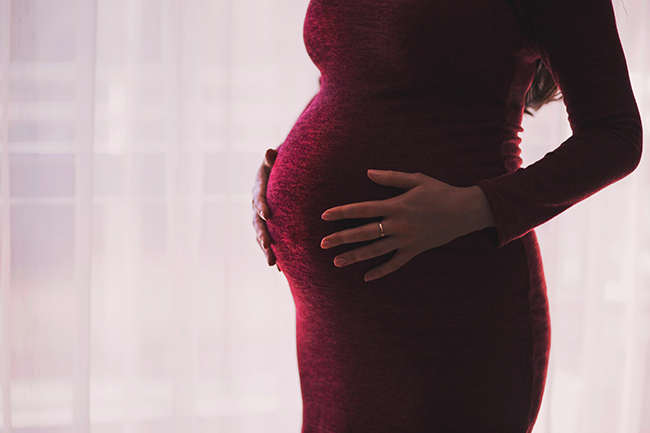Did you know that babies begin learning in the womb? Before she is even born, your baby has already been exposed to many opportunities for language learning while in utero.
Language learning begins in the womb
A study by Dr. Patricia Kuhl, Ph.D., stated that babies not only hear their mother’s voice and understand their mother’s inflection, but they are also already learning her language in the womb. This is the foundation for language. In fact, just hours after your baby is born, she can distinguish between your native tongue and the foreign language of another mother.
Because your voice is magnified and amplified by your body, it can be heard by your baby, along with other sounds, in utero. Your baby is also already making sense of the sounds she hears. By hearing speech patterns and rhythms in the womb, your baby is learning her primary language. Further, many researchers believe that you can facilitate your child’s language development, not only in your womb, but also, after birth.
Teaching sound recognition
In fact, research now indicates that you can even teach your baby before birth. For example, your fetus is so sensitive, that any stimulation from you can affect your baby directly.
According to studies using EEG sensors, which search for neural traces of memory in utero, sound repetition is incorporated into your baby’s memory. Now, if the sound is replicated, her memory is activated. When your baby is introduced repeatedly to a sound, her memory stimulates the recognition of that sound. Thus, brainwave patterns identify her memory of the recognized sound.
Further, a study headed up by cognitive neuroscientist Eino Partanen shows that your baby’s brain not only learns repeated sounds in the womb, but she also recognizes words and their variations. The study indicates that the neural signals for identifying sound, including vowels, are visible as memory traces in your baby at her birth.
Your baby is learning nonstop in utero
Ten weeks before birth, your baby will use many of her senses to learn about her inner world. Ultrasounds show that your baby will react to sound by kicking, moving, and even dancing around, in the womb; your baby may even lift up-and-down when she hears your laughter.
Moreover, her heart-rate may lower as she is comforted by hearing your voice. She may touch her face, suck her thumb, stretch her limbs, grasp her feet, and have enough coordination to hold her own umbilical cord with her fingers.
Much of your baby’s prenatal sleep occurs in REM. She may sleep for most of the day and night while dreaming – most likely about her own inner world. If you have twins, you might be interested to know that, after 20 weeks, twins in utero play with each other, demonstrating both fear and anger.
Evidence your baby remembers sounds heard in the womb
Dr. Christie Moon, Ph.D., and Dr. Hugo Lagercrantz, co-authored a study with Dr. Patricia Kuhl, using a pacifier to measure the frequency of sucking demonstrated by newborns upon hearing her mother’s particular language. Every sucking movement related to a produced vowel. Each baby paused when unfamiliar vowels were introduced, and each new suck produced the next vowel sound. And finally, two sets of vowel sounds were used in conjunction with seventeen foreign language sounds, and seventeen native language sounds.
As a result, this research indicates that your baby can remember elementary sounds from you as early as 10 weeks prior to birth. Furthermore, this neurosensory mechanism for hearing is functioning at 30 weeks of gestational age. Hence, phonetic learning occurs in the womb. Also, past research indicates that your baby both responds and remembers musical sounds and rhythms heard in the womb.
Now we know, that your baby is laying the foundation for language development and is, in fact, partially learning a language before her birth. So, be sure to talk to her constantly, before she is born. Play music, and expose her to all sorts of sounds of daily life. These studies indicate that your baby’s brain is very sophisticated in utero; she is listening closely, and learning. Therefore, be what you want to see.


